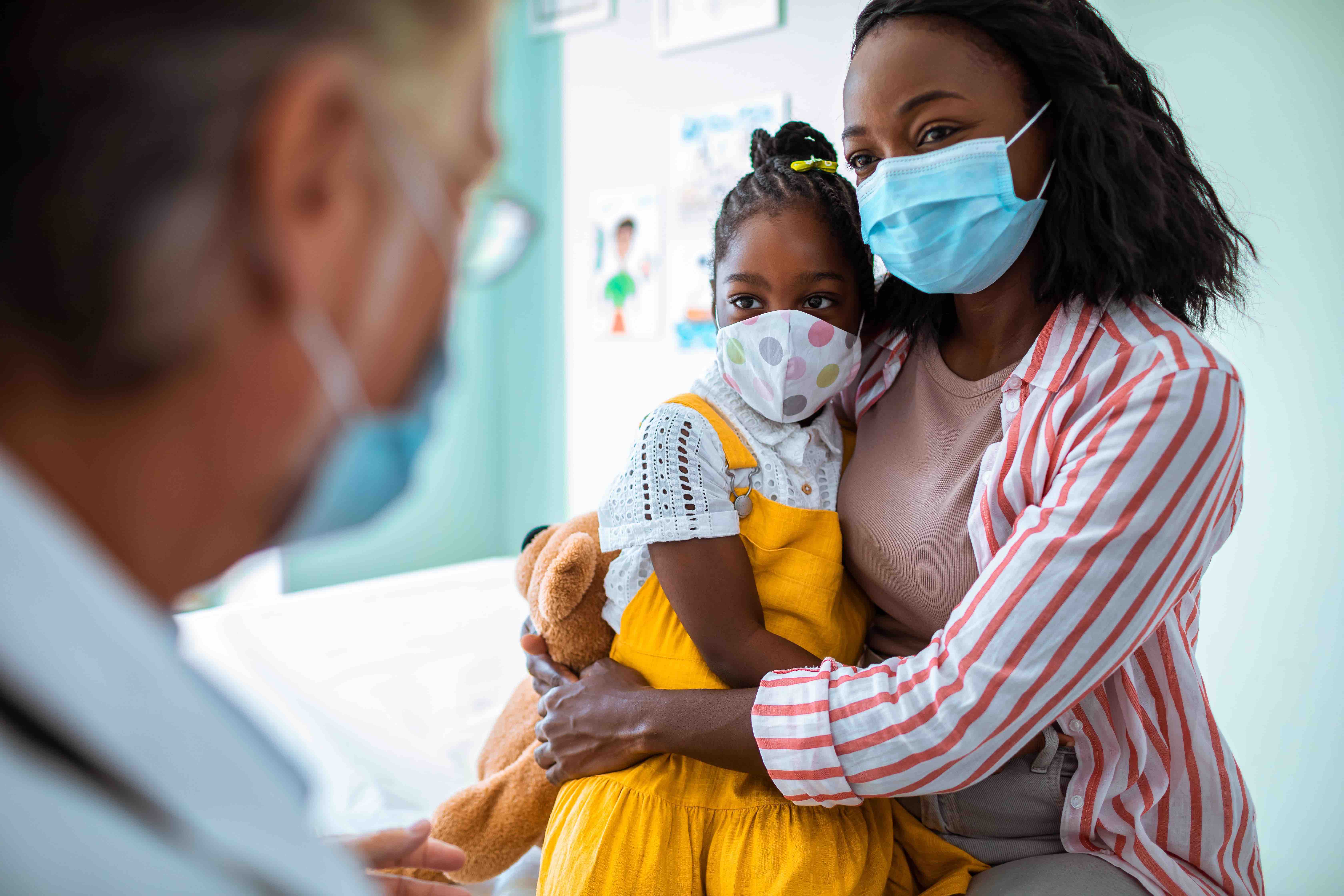| | | | | | | Presented By PhRMA | | | | Vitals | | By Caitlin Owens ·Feb 26, 2021 | | Good morning. On Sunday's "Axios on HBO," Reddit CEO Steve Huffman tells Axios' Erica Pandey how the company changed its salary philosophy during COVID, why users are allowed anonymity, and his own approach to financial advice from Reddit. (See clip.) - Tune in for this and more can't-miss interviews at 6pm ET/PT on all HBO platforms.
Today's word count is 951, or a 4-minute read. | | | | | | 1 big thing: The debate over delaying doses is back |  | | | Illustration: Eniola Odetunde/Axios | | | | New research is bolstering the case for delaying second doses of coronavirus vaccines. Why it matters: Most vulnerable Americans remain unvaccinated heading into March, when experts predict the more infectious virus variant first found in the U.K. could become dominant in the U.S. By the numbers: Around 41% of adults 65 and older have been vaccinated, per KFF. Driving the news: An analysis of the real-world outcomes of the Pfizer vaccine in Israel, released earlier this week in the New England Journal of Medicine, found that the vaccine was 60% effective at preventing documented coronavirus infection 21 to 27 days after the first dose, and 92% effective seven or more days after the second dose. - But one shot was much more effective at preventing severe disease and hospitalization during the same time period, with respective efficacies of 80% and 78%. Two doses were 92% effective at preventing severe disease and 87% effective at preventing hospitalization.
- And a growing body of research suggests that people who have previously been infected with COVID are sufficiently protected by only one dose, per NYT.
What they're saying: There's now enough data to support delaying second doses of the Pfizer and Moderna vaccines, along with other dosing changes, in order to give more people more protection faster. - And the variant makes doing so urgent, a group of public health experts argue in a white paper, published this week by the University of Minnesota's Center for Infectious Disease Research and Policy, calling for the FDA and the CDC to review the data.
The other side: Scottish researchers released a preprint of a study that suggests protection from a single dose may decline after five weeks, Business Insider reports. - "I think delaying the second dose for a considerable period of time is a mistake," Paul Offit, the director of the Vaccine Education Center at Children's Hospital of Philadelphia, told Insider.
Go deeper. |     | | | | | | 2. Employers mull COVID vaccine requirements | | Nearly half of employers say they're at least considering the idea of requiring proof of vaccination as a condition for employees return to in-person work, according to a survey from Willis Towers Watson. Why it matters: The gradual upticks in mass vaccinations has allowed America's workforce to begin to picture reopened office buildings, Axios' Marisa Fernandez writes. The big picture: Employers have the legal right to require that their workers get COVID-19 vaccines, with accommodations for religious objections and employees with disabilities. By the numbers: 34% of employers said they are planning or considering mandating vaccines as a condition of employment, according to the WTW report, which surveyed 494 businesses employing 6.4 million people. - Still, employers expect nearly two in five employees will still be working remotely at the end of 2021, compared with 57% who work remotely now, varying by industry.
Yes, but: Vaccine mandates do risk backlash, Ross Silverman, a professor at Indiana University, told Pew Charitable Trusts, and it could be better for companies to encourage vaccination and make it easily available for those who want it if possible, he said. - "That's really where I think most of the conversations should be leaning, is how can you make workplaces safe as a system," he said, "rather than trying to create a requirement for vaccination."
- 65% of employers said they are planning or considering exploring vendor solutions to provide vaccines, according to the WTW survey.
Go deeper: There probably won't be a lot of vaccine mandates |     | | | | | | 3. The latest in the U.S. |  Data: The COVID Tracking Project; Note: Does not include probable deaths from New York City; Map: Andrew Witherspoon/Axios COVID-19 survivors tend to have a roughly tenfold increase in protection against the virus, according to a government-funded study published Wednesday. Pfizer and BioNTech on Thursday announced they have launched a study to evaluate whether a third dose of their COVID-19 vaccine can protect against new variants of the virus. A number of abandoned Sears locations have gotten a second life as COVID-19 vaccination centers, converted from community blights to community saviors, Axios' Dan Primack reports. |     | | | | | | A message from PhRMA | | Biopharma is committed to being a part of the solution | | |  | | | | As we usher in a new administration and Congress, there are many things on which we can all agree, like building a more just, equitable society. | | | | | | 4. The latest worldwide |  Here's a rare feel-good item: Axios' Dave Lawler has four reasons for optimism about the global pandemic: 1. The global COVAX vaccine initiative is now off the ground, with the first shipments arriving in Ghana earlier this week and Ivory Coast today. - 60 mainly low-income countries are set to receive the Oxford/AstraZeneca vaccine in the first phase of distribution.
2. Moderna is ready to begin testing a new vaccine designed to protect against the South African variant of COVID-19. Pfizer and Johnson & Johnson are conducting work along similar lines. - Quickly adapting existing vaccines to new variants could help subdue the virus in the longer term.
3. Johnson & Johnson's single-shot vaccine is 85% effective against severe to critical cases of COVID-19 and 66% effective overall, according to the FDA, which is expected to clear it for use in the U.S. within days. - The vaccine is cheap, can be kept at normal refrigerated temperatures, and is destined primarily for the developing world. COVAX has purchased 500 million doses, and the African Union has secured another 120 million.
4. Initial data from the vaccination campaign in the U.K. indicates, as expected, that those who are vaccinated are dramatically less likely to become infected with COVID-19 and far less likely to require hospitalization if they do. |     | | | | | | 5. Dog of the week | | Buddy. Photo: Beth Friedman It is my last week in Tampa, so my dad requested that he gets to pick a dog of the week. Meet Buddy. - "Buddy is my chi mix. He is about four years old. We rescued him three years ago when he was wandering the neighborhood," writes his mom, Beth.
- "His favorite spot to spend the day is snuggled next to my feet under my desk as I work, have video calls, talk on conference calls, etc. It's a mutually beneficial relationship. I 'pet' him with my feet all day and he keeps my feet warm." (This is the part my dad liked best.)
- "He also likes to help me with folding laundry, especially warm sheets. And is known to steal socks!"
Bonus: I can't not include Nutmeg, who "almost always has a stuffed animal in his mouth, including when he takes a nap." Nutmeg. Photo: Michelle Francis Nutmeg, sleeping with a toy in his mouth. Photo: Michelle Francis |     | | | | | | A message from PhRMA | | We are committed to being a part of the solution | | |  | | | | As we usher in a new Congress and new administration, we can all agree that people need quality, affordable health coverage that works when they need it. - We are focused on solutions that help patients better afford their medicines and protect access to innovation today and in the future.
| | | | | | Axios thanks our partners for supporting our newsletters.
Sponsorship has no influence on editorial content. Axios, 3100 Clarendon Blvd, Suite 1300, Arlington VA 22201 | | | You received this email because you signed up for newsletters from Axios.
Change your preferences or unsubscribe here. | | | Was this email forwarded to you?
Sign up now to get Axios in your inbox. | | | | Follow Axios on social media:    | | | | | |









No comments:
Post a Comment